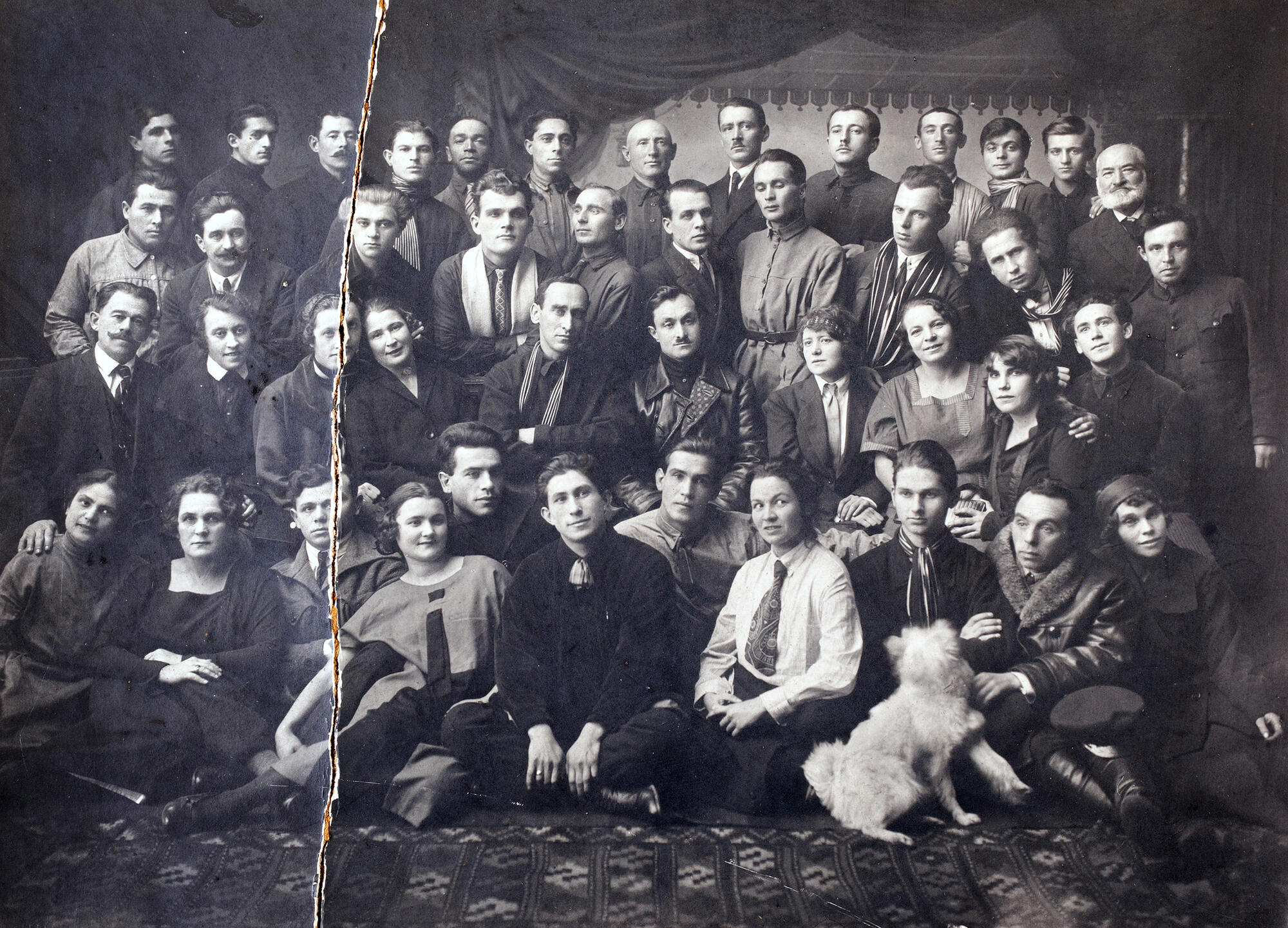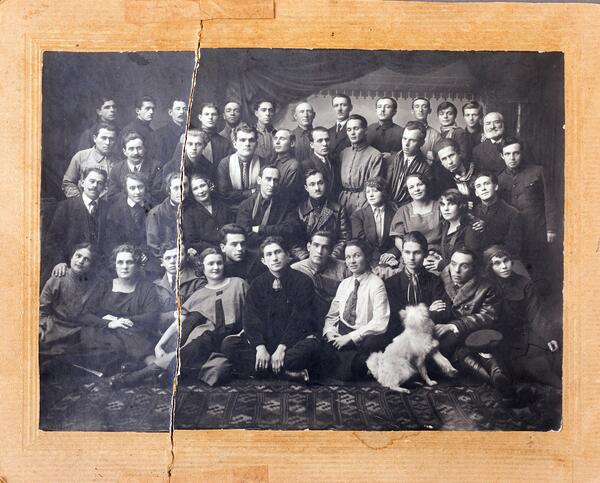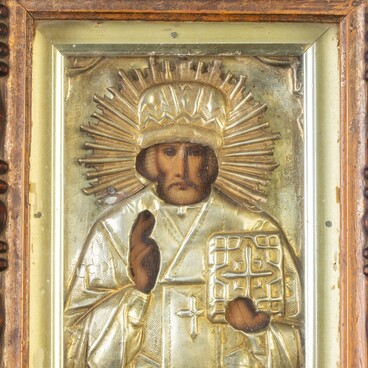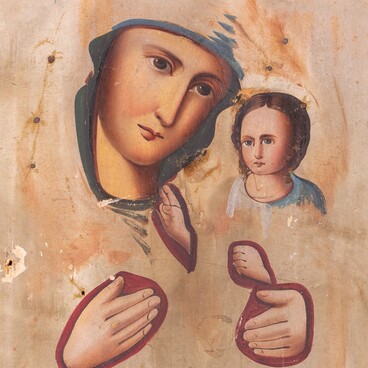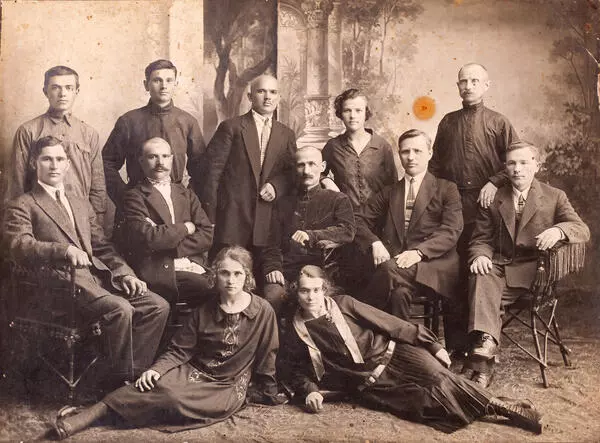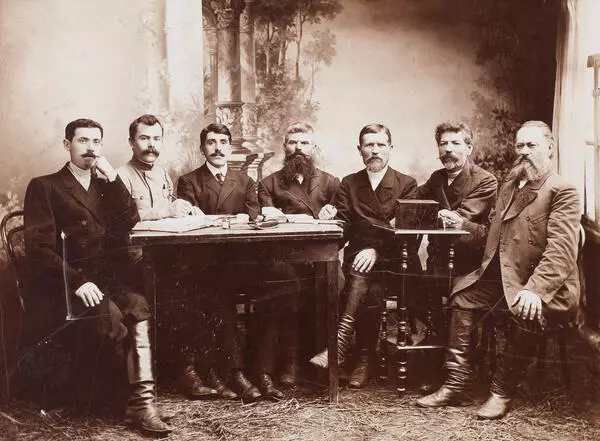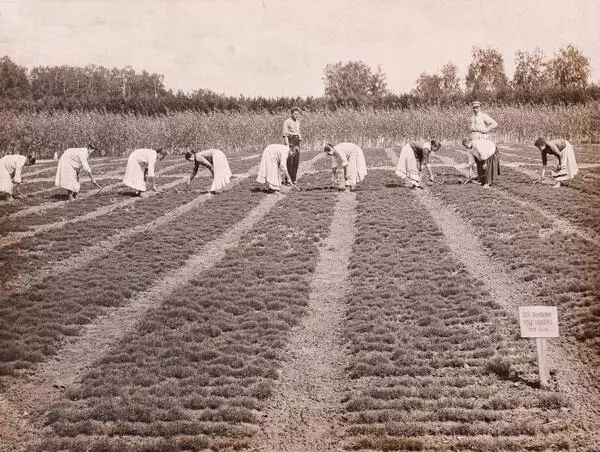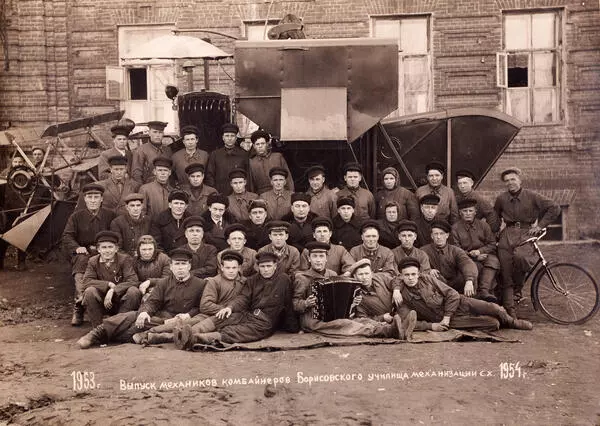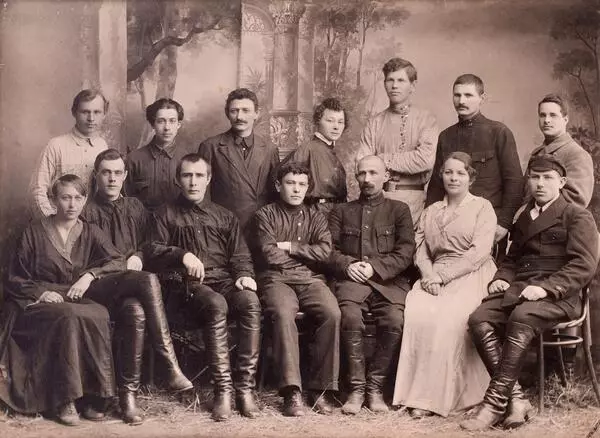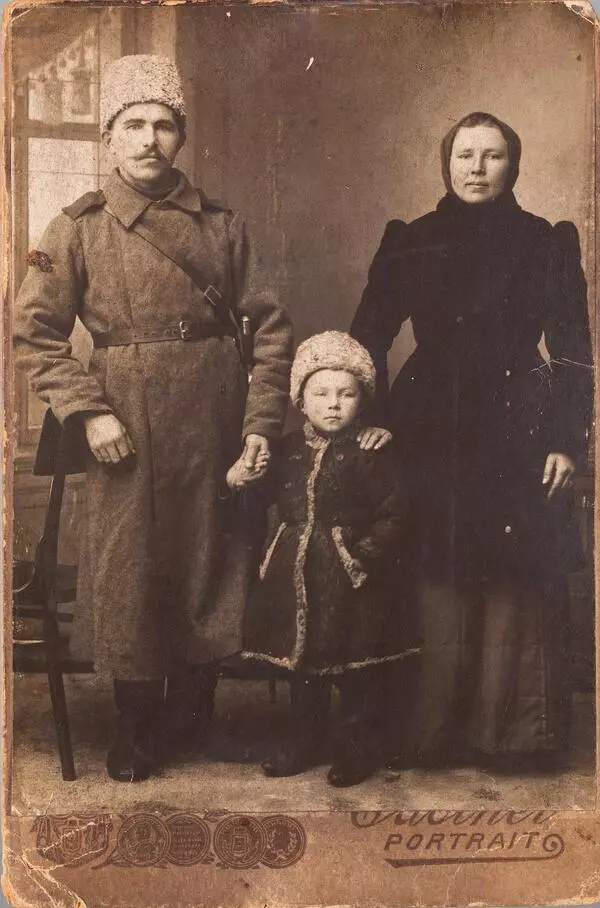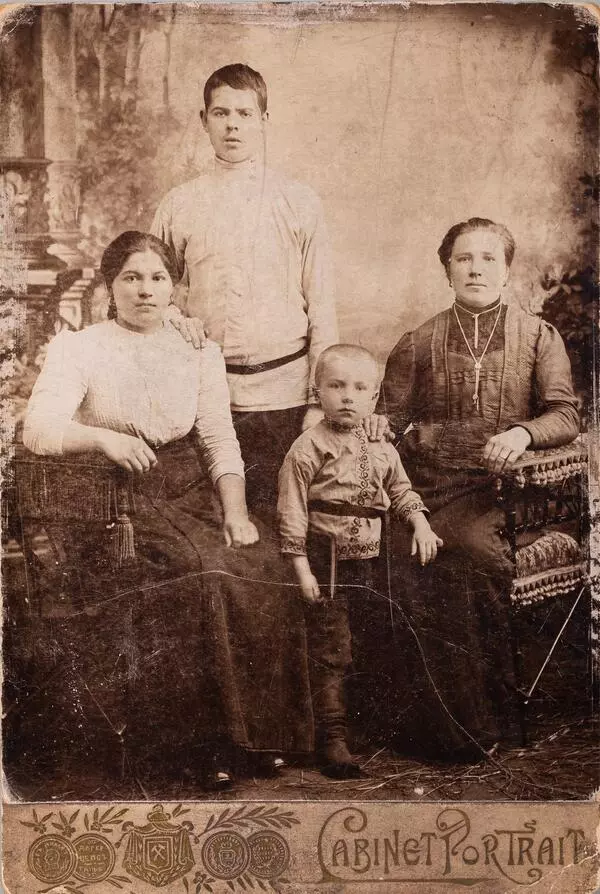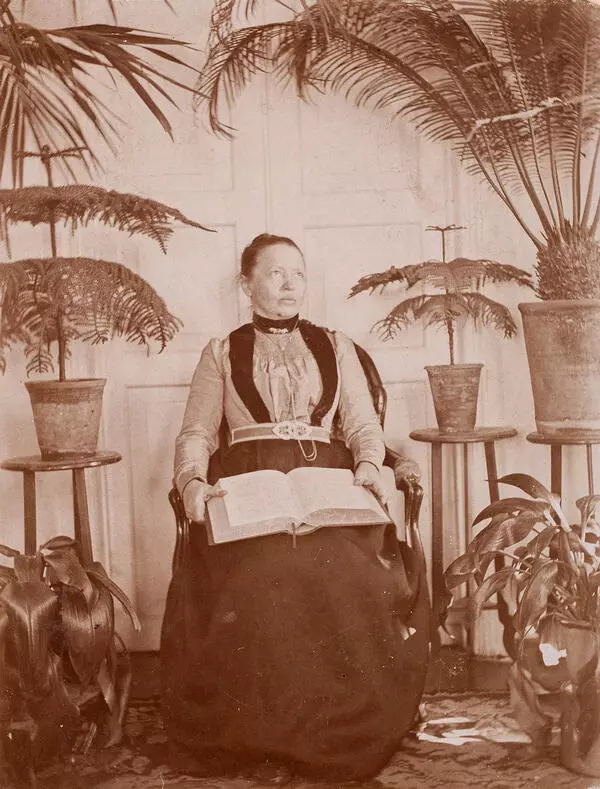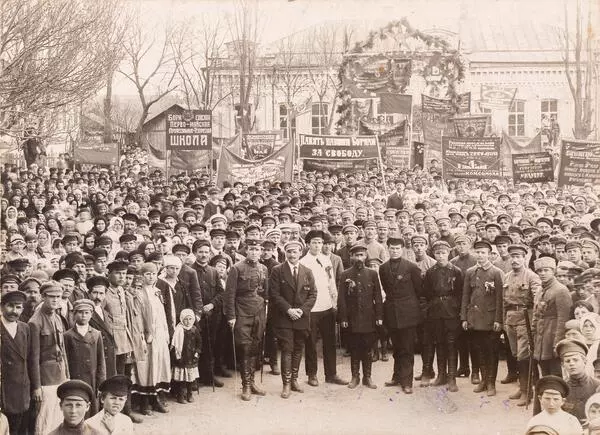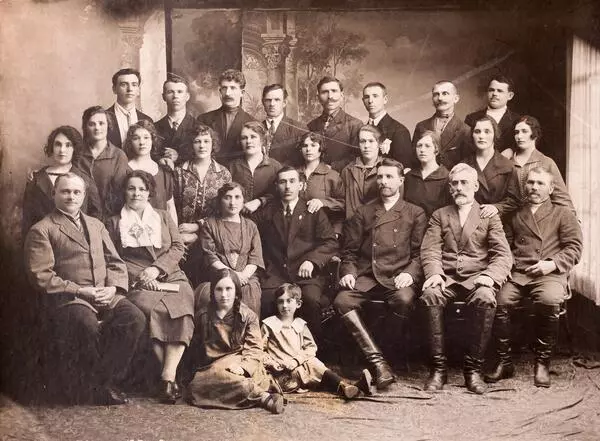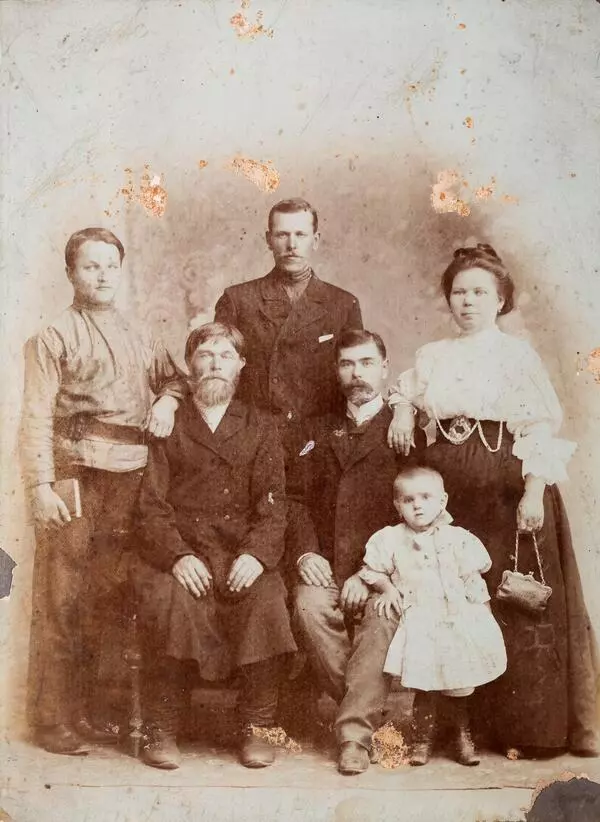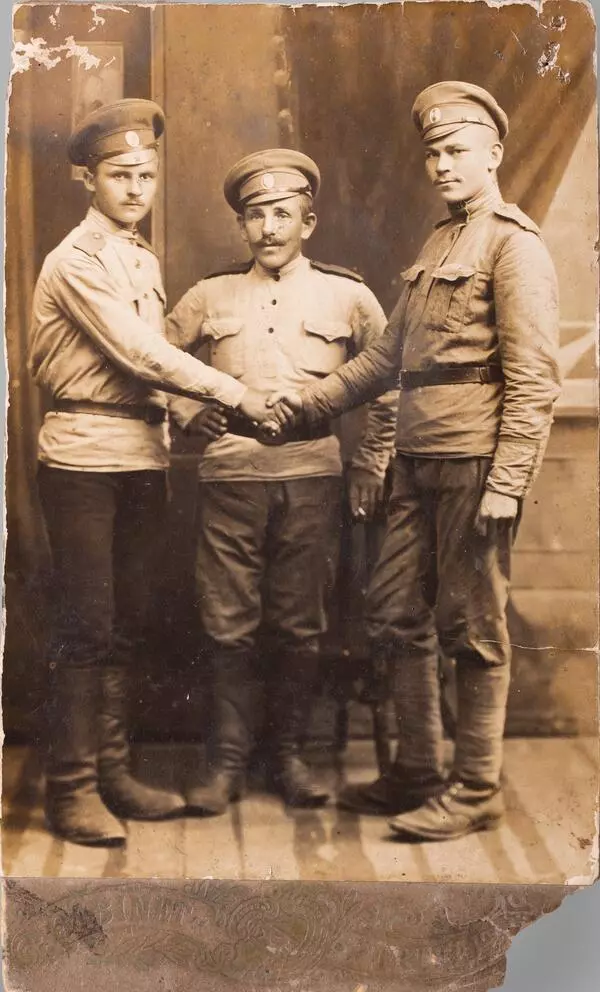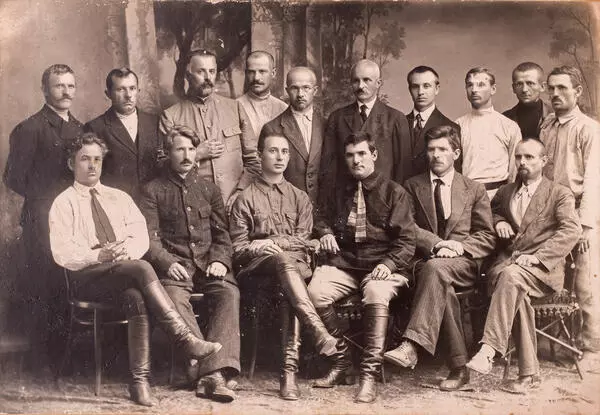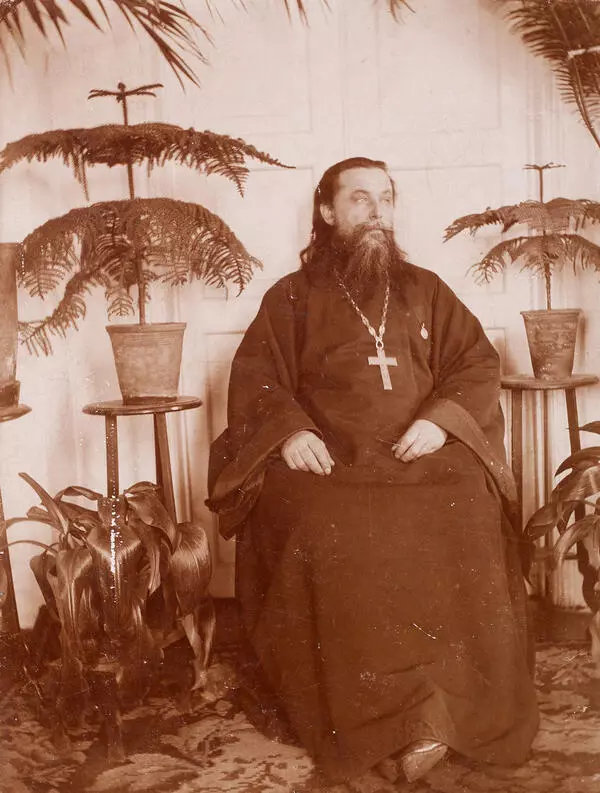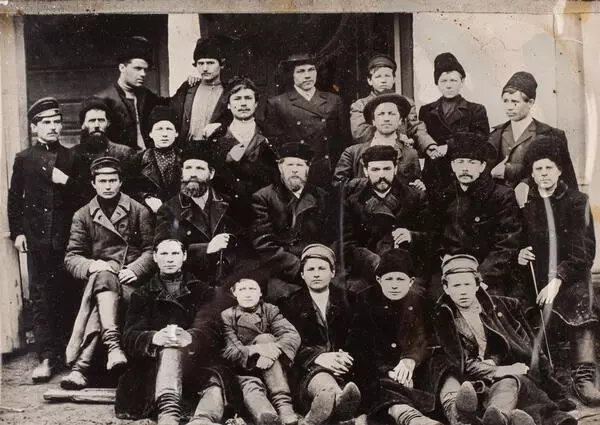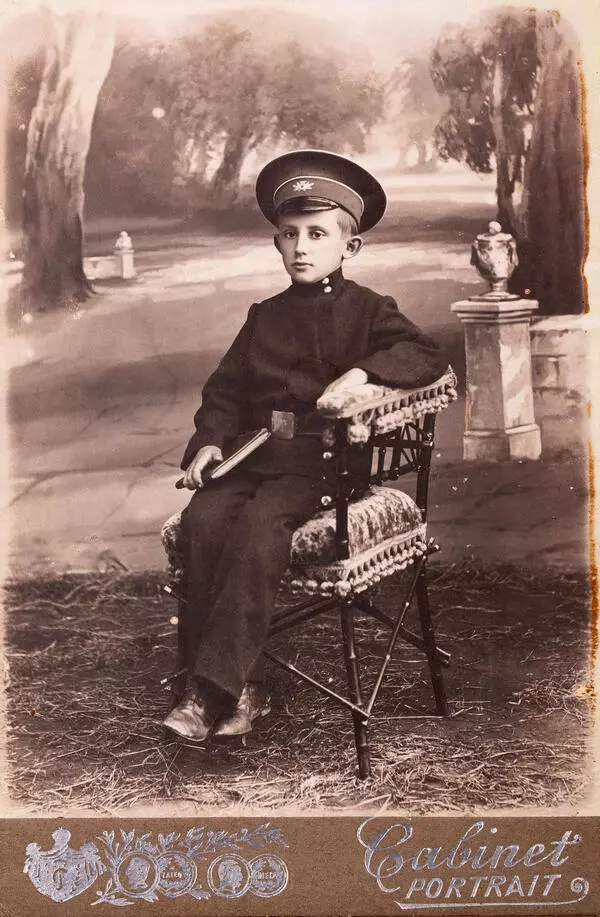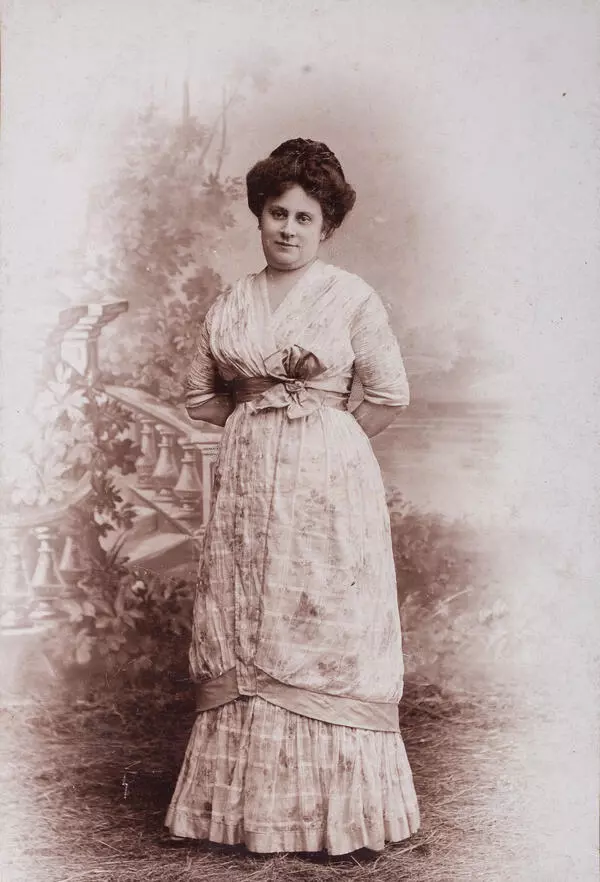The amateur Borisovka theater was an important phenomenon not only for the settlement itself, but also for the entire county, because there were no such establishments even in larger towns.
The first performance — Nikolai Vasilyevich Gogol’s play “Marriage” — took place on July 20, 1878. All the roles were played by actors from peasant families; it was staged at the peasant house of a local resident Sukhoivanov. Few of the potential viewers took the new entertainment seriously: they laughed at the actors from their own village, and even threw stones at the windows during rehearsals.
However, the good-hearted undertaking flourished. Under the guidance of professional mentors N.A. Vasyutinsky and A.M. Smakovsky in 1881, the Borisovka actors managed to stage the sentimental operetta “I am Going for Neman” by Vasily Ivanovich Pashchenko. By that time, the audience managed to “mature” to this kind of art and welcomed the new performance with interest.
In about 1886, performances became a tradition and regularly took place during Christmas and Easter festivities. By that time, theatrical life centered around Pavel Yakovlevich Barvinsky, an actor, stage director and playwright. Thanks to his efforts and donations from local merchants, a summer theater in the garden was built in the settlement.
The repertoire of Barvinsky’s troupe included dramas, comedies, history plays, operas and operettas. Among them were “Let Your Heart Loose, It Will Lead You into Trap” by Marko Kropyvnytskyi, “Nazar Stodolya” by Taras Shevchenko, “The Courtship at Goncharivka” by Hryhorii Kvitka-Osnovianenko, “Twist but Don’t Try Too Hard” by Mykhailo Starytsky, “Natalka Poltavka” by Ivan Kotliarevsky and a number of plays by Pavel Yakovlevich himself: the drama “Katorga”, the history drama “Antos Dukat”, the comedies “Nihilist”, “If You Dig a Well by Force — You Won’t Drink” and others.
In addition to regular artists from the peasants, professional actors were sometimes invited to be part of productions.
By the early 20th century, the Borisovka theater had fallen into decline, but already in the post-war years, Alexandra Fyodorovna Dyumina-Tkachenko continued the work of her teacher.
The first performance — Nikolai Vasilyevich Gogol’s play “Marriage” — took place on July 20, 1878. All the roles were played by actors from peasant families; it was staged at the peasant house of a local resident Sukhoivanov. Few of the potential viewers took the new entertainment seriously: they laughed at the actors from their own village, and even threw stones at the windows during rehearsals.
However, the good-hearted undertaking flourished. Under the guidance of professional mentors N.A. Vasyutinsky and A.M. Smakovsky in 1881, the Borisovka actors managed to stage the sentimental operetta “I am Going for Neman” by Vasily Ivanovich Pashchenko. By that time, the audience managed to “mature” to this kind of art and welcomed the new performance with interest.
In about 1886, performances became a tradition and regularly took place during Christmas and Easter festivities. By that time, theatrical life centered around Pavel Yakovlevich Barvinsky, an actor, stage director and playwright. Thanks to his efforts and donations from local merchants, a summer theater in the garden was built in the settlement.
The repertoire of Barvinsky’s troupe included dramas, comedies, history plays, operas and operettas. Among them were “Let Your Heart Loose, It Will Lead You into Trap” by Marko Kropyvnytskyi, “Nazar Stodolya” by Taras Shevchenko, “The Courtship at Goncharivka” by Hryhorii Kvitka-Osnovianenko, “Twist but Don’t Try Too Hard” by Mykhailo Starytsky, “Natalka Poltavka” by Ivan Kotliarevsky and a number of plays by Pavel Yakovlevich himself: the drama “Katorga”, the history drama “Antos Dukat”, the comedies “Nihilist”, “If You Dig a Well by Force — You Won’t Drink” and others.
In addition to regular artists from the peasants, professional actors were sometimes invited to be part of productions.
By the early 20th century, the Borisovka theater had fallen into decline, but already in the post-war years, Alexandra Fyodorovna Dyumina-Tkachenko continued the work of her teacher.
